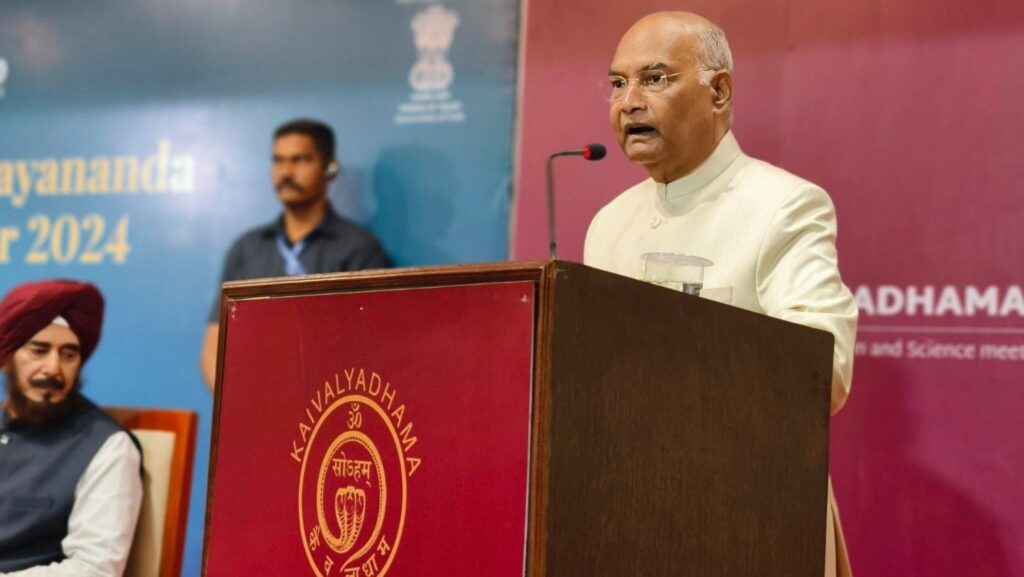New DelhiAugust 22, 2025 09:59 PM IST
First published on: Aug 22, 2025 at 09:58 PM IST
IN A move laden with symbolism, the RSS has announced that former President Ram Nath Kovind will be the chief guest at its centenary Vijayadashami Utsav. The event, scheduled for 7.40 am at Reshimbagh, Nagpur, marks 100 years of the Sangh. RSS Sarsanghchalak Mohan Bhagwat will deliver the keynote address.
The choice of Kovind, the country’s second President from the Dalit community after late K R Narayanan, carries political and social resonance at a time when questions of caste and representation dominate national discourse. Historically accused by critics of being “Brahmanical” in character, the RSS has in recent years sought to project an image of inclusion through its Samajik Samrasta (social harmony) campaign.
Launched formally at the Akhil Bharatiya Pratinidhi Sabha (ABPS) in 2022, the campaign focuses on dismantling caste-based barriers, especially those that limit Dalit access to shared social resources like wells, crematoriums and temples. Senior Sangh leaders have repeatedly stressed that addressing caste discrimination is not a tactical choice but an “article of faith” central to the RSS’s vision of Hindu unity.
Speaking at the ABPS in March 2024, RSS Sarkaryavah Dattatreya Hosabale underlined the organisation’s resolve to end practices of exclusion. “Denying anyone access to wells, cremation grounds, temples or lakes goes against our civilisational ethos. True social transformation can happen only when society itself takes responsibility,” he said, according to a statement on rss.org.
The Sangh has coupled this message with symbolic gestures over the years.
Vijayadashami, the RSS’s founding day, has often been used to underline its commitment to social harmony. In 2016, for instance, several state units of the Sangh invited Dalit religious leaders to preside over local events. The centenary choice of Kovind elevates this symbolism to the national stage.
The announcement comes amid renewed debates over caste representation. With the opposition Congress pressing for a caste census and demanding an expansion of reservation quotas, the RSS has found itself navigating an increasingly fraught social landscape. While the Sangh has indicated openness to data-driven welfare, it has cautioned that caste enumeration should not become a “political tool” that deepens divisions.
By placing Kovind — a figure widely respected across the political spectrum — at the heart of its centenary celebration, the RSS signals a deliberate intent to broaden its outreach among marginalised communities. Leaders within the organisation insist this is consistent with long-standing programmes rather than a reaction to current political pressures.
As part of its centenary roadmap, the Sangh has announced a massive grassroots exercise under the Samajik Samrasta banner. Over one lakh ‘Hindu Sammelan’ and ‘Ghar-Ghar Sampark Abhiyan’ are planned nationwide, aimed at bringing together diverse Hindu communities and encouraging dialogue on caste inequities. The campaign has also focused on integrating Dalits into temple rituals and ensuring their access to public facilities in rural India — a sensitive issue in several states.
For the RSS, the centenary provides an opportunity to redefine its narrative. Sangh functionaries maintain that the movement towards social harmony has been underway for decades and is now being foregrounded as central to its ideological project. The selection of Kovind is meant to symbolise this journey — presenting a vision of Hindu unity that transcends caste.




